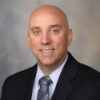(RxWiki News) Many people have questions before surgery. Some of the things they don’t ask are those that their surgeons most need to know.
A Mayo Clinic surgeon has developed five questions everyone should ask before undergoing a surgical operation.
These questions include things many people might not consider asking, such as whether their surgeon is specifically trained for a certain type of surgery, or whether sleep apnea could cause complications.
"Talk to your surgeon about any concerns you have about your operation."
Dr. Robert Cima, a colon and rectal surgeon at the Mayo Clinic and chair of Mayo’s Surgical Quality Subcommittee, came up with these questions.
“There are things people don’t routinely ask, but should,” Dr. Cima said. He suggested that when attending an appointment to ask questions, patients should bring a friend or relative along. That friend can help ask questions and remember what was said, and their presence may even quell the patient's anxiety.
According to Dr. Cima, patients should ask the following questions before surgery.
1) Is the surgeon board-certified?
Dr. Cima said being certified is a sign that the doctor is committed to high-quality care. It shows that he or she is likely to know the latest techniques and news. Patients can also check if their surgeon is certified by going to the American Board of Medical Specialties website.
Dr. Cima acknowledged that many people may be wary of asking their surgeon this question. But he pointed out that “a lot of cosmetic surgeries are done by dermatologists or family doctors” who may not have the extensive training that a board-certified physician does.
He also said that people ask many questions and search consumer reports before buying a car, so isn’t getting high-quality care for your body just as important?
2) Should I lose weight before surgery?
Dr. Cima said being as healthy as possible before surgery boosts the chances that patients will recover well. Being healthy involves eating well, including lots of protein but not much sugar or fat. Protein contributes to a lean body mass, which everyone needs to recover well from surgery. “What repairs your body is protein, not sugar,” Dr. Cima told dailyRx News.
Furthermore, Dr. Cima stressed that “being physically active beforehand is a huge contributor to success.” He pointed out that many older people can return to independence if they keep their body in shape as much as possible, especially prior to surgery.
Dr. Cima also addressed how diabetes patients should prepare for surgery. He said that diabetes patients need to have their disease under control before scheduling surgery. Even a mild increase in blood sugar can negatively impact outcomes, Dr. Cima said.
If a diabetes patient's blood sugar levels have been high or erratic in the two to three weeks before surgery, that patient may want to wait to have surgery. If you have diabetes, Dr. Cima recommended that you discuss blood sugar levels with your primary care doctor or surgeon.
3) Should I stop smoking?
Anyone considering surgery should definitely cut down or quit smoking altogether, Dr. Cima urged. Even stopping two weeks before surgery may aid in recovery. Patients should ask their doctor for suggestions on ways to quit smoking.
Smoking increases the risk for infection after surgery, Dr. Cima said. Healing takes longer for people who smoke. The habit also increases one's risk for pneumonia and cardiovascular problems, which are complications many people face after surgery, he noted.
“The nicotine and many of the compounds in tobacco smoke constrict the small blood vessels. You need those blood vessels to be open to bring blood down to the level of the healing wound,” Dr. Cima said.
4) What if I have sleep apnea?
Sleep apnea is another issue for many patients before surgery. Should someone with sleep apnea tell their doctor? Definitely, and even bring along the machine that helps them breathe at night, called a CPAP, if they have one, Dr. Cima suggested.
Someone who suspects they have sleep apnea can be tested before surgery. Some surgical centers, including the Mayo Clinic, screen patients for sleep apnea in the recovery room, Dr. Cima said. Having a breathing disorder is associated with post-surgical complications, so anyone concerned about sleep apnea should be sure to discuss it with their surgeon.
5) Is there anything that can shorten my hospital stay?
“The most important thing from the patient’s point of view is to come into the surgery as 'optimized' as you can,” Dr. Cima said. “So that means, if possible, having lost weight or increased your lean muscle mass. It means getting better control of your diabetes, knowing that you’re on a stable regime with good sugar levels. It means, if possible, decreasing or stopping smoking all together.”
A person contemplating surgery should discuss all their concerns with their surgeon, he urged. “We want people to feel comfortable asking us about their care here,” he said.






